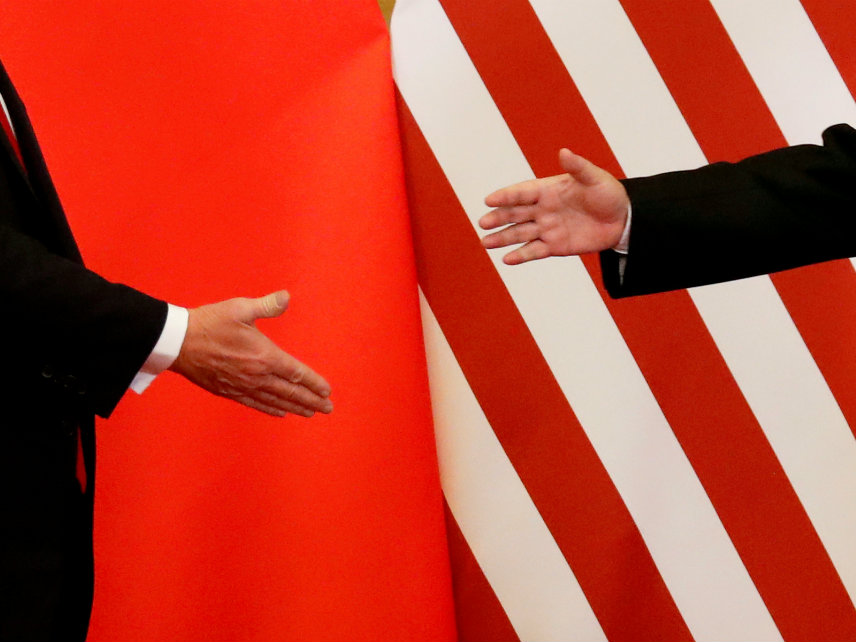Mnuchin: 'We're Putting the Trade War on Hold'
Treasury Secretary Steven Mnuchin says Trump administration is withdrawing plan to impose 25 percent tariffs on $150 billion of Chinese imports.

The Trump administration's trade war with China is over—or at least it's not starting just yet.
Treasury Secretary Steven Mnuchin, during an appearance on Fox News Sunday, said the administration is withdrawing its plan to impose 25 percent tariffs on more than 1,300 Chinese-made goods valued at more than $150 billion while the United States and China continue trade negotiations.
"We're putting the trade war on hold," Mnuchin said. "Right now, we have agreed to put the tariffs on hold while we try to execute the framework."
There were two major developments this week that may have influenced the administration's shift. First, as Mnuchin suggested, there were two days of intense negotiations between the two countries, which concluded Saturday with the release of a joint statement including several vague promises about China's intention to buy more American products. Second, the Office of the U.S. Trade Representative held three days of hearings on the proposed tariffs, with dozens of American business owners expressing their anger and frustration with the proposal, which they said would do significant damage to the domestic economy.
The Trump administration has already gone ahead with tariffs on steel and aluminum, imposed on supposed national security grounds. The second round of tariffs specifically targeting Chinese goods were to be issued under Section 301 of the Trade Act of 1974, which allows the president to use tariffs as a means of resolving trade disputes or to punish unfair trade practices. The Trump administration has sold the tariffs as a way to close America's trade deficit with China—even though a trade deficit isn't really a problem.
Trump's defenders are likely to seize on Sunday's news as proof that the president was always using the tariff threat as a negotiating tactic to bring China to the table. That may be true, but it's too soon to tell. The concessions made this week by China—most importantly, a promise that China will increase purchases of American imports by $200 billion—sound like a victory for the administration, but leave many details unanswered. It's also unclear whether China has actually agreed to the $200 billion figure, as The Wall Street Journal reported Saturday that Chinese officials had refused to make that commitment.
Even if China did agree to the figure, economists say it would be difficult for America to increase exports by "anything close to that figure," The New York Times reports.
And using tariffs as a negotiating tactic with China might have soured the trade relationship between the United States and Europe. Trade wars, even ones that are narrowly avoided, are complicated and not easy to win.
Still, removing the immediate threat of tariffs is a clear victory for American consumers and businesses. If the tactic helps ease tensions between the United States and China, even better.


Show Comments (97)